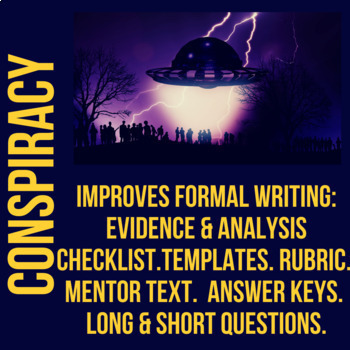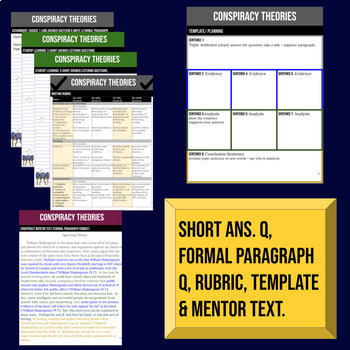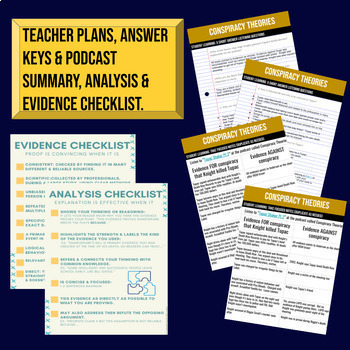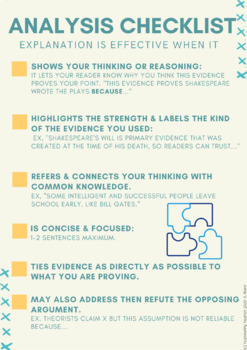Area 51- Conspiracy Theory - Listen, Short Answer, & Paragraph
- Google Slides™

What educators are saying
Description
I used to hate it when students would bring up conspiracy theories like aliens and Area 51, as I thought it was my job to convince them why this was unreasonable, and I didn't always have the context or facts to do that! Sadly, I didn't realize that I was missing a major opportunity to engage their interest. Now, I have a plan and this assignment does the work for me. In addition, this assignment is further important because it is skill-based, and it targets evidence and analysis skills for the improvement of formal paragraph writing.
You are busy. So, the supports provided within mean that you do not have to pre-listen to the podcast to fully assess student work. Detailed teacher answer keys are provided, and you may get 2 marks (listening & writing) for your reports.
Students can work independently on this task, and it works well in school or from home. Also, although I said this assignment would take 3 hours, there is another lengthy episode of the podcast (pt 1), so you have an easy extension option for students who finish work quickly, or are very interested in the subject.
Please feel free to message me with requests for other conspiracy topics.
This document contains:
Step 1: Student Learning
Evidence and Analysis checklists
Link to engaging podcast
Note taking organizer
Step 2: Comprehension Assessment
Short answer listening questions
Step 3: Formal Paragraph Writing
Long answer questions: 2 options
Mentor Text
Rubric
Formal paragraph template
Step 4: Assessing/ Take-up
Teacher answers for short answer
Teacher support for long answer marking (summary of vital evidence)
If you require more formal paragraph practice, and your students like conspiracies, please see my similar assignments:





